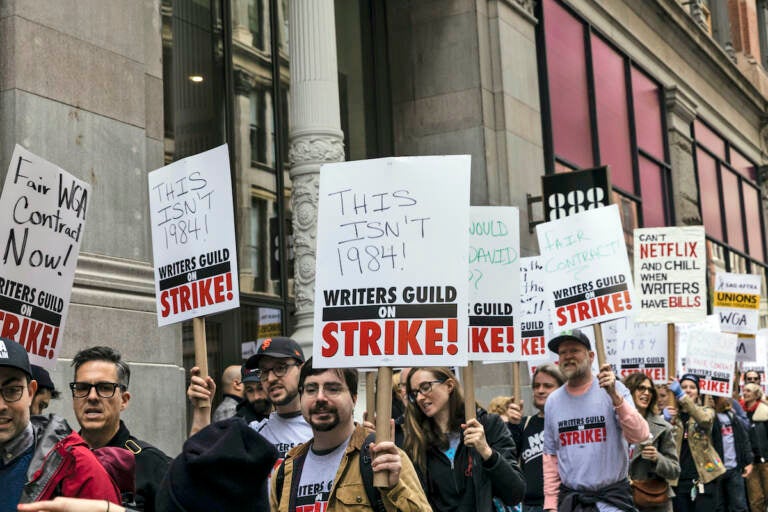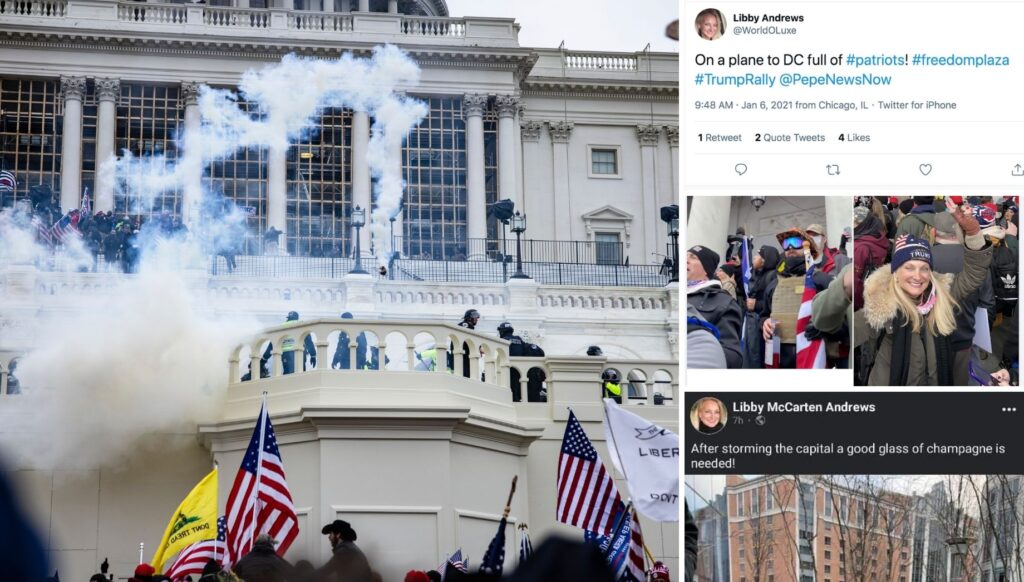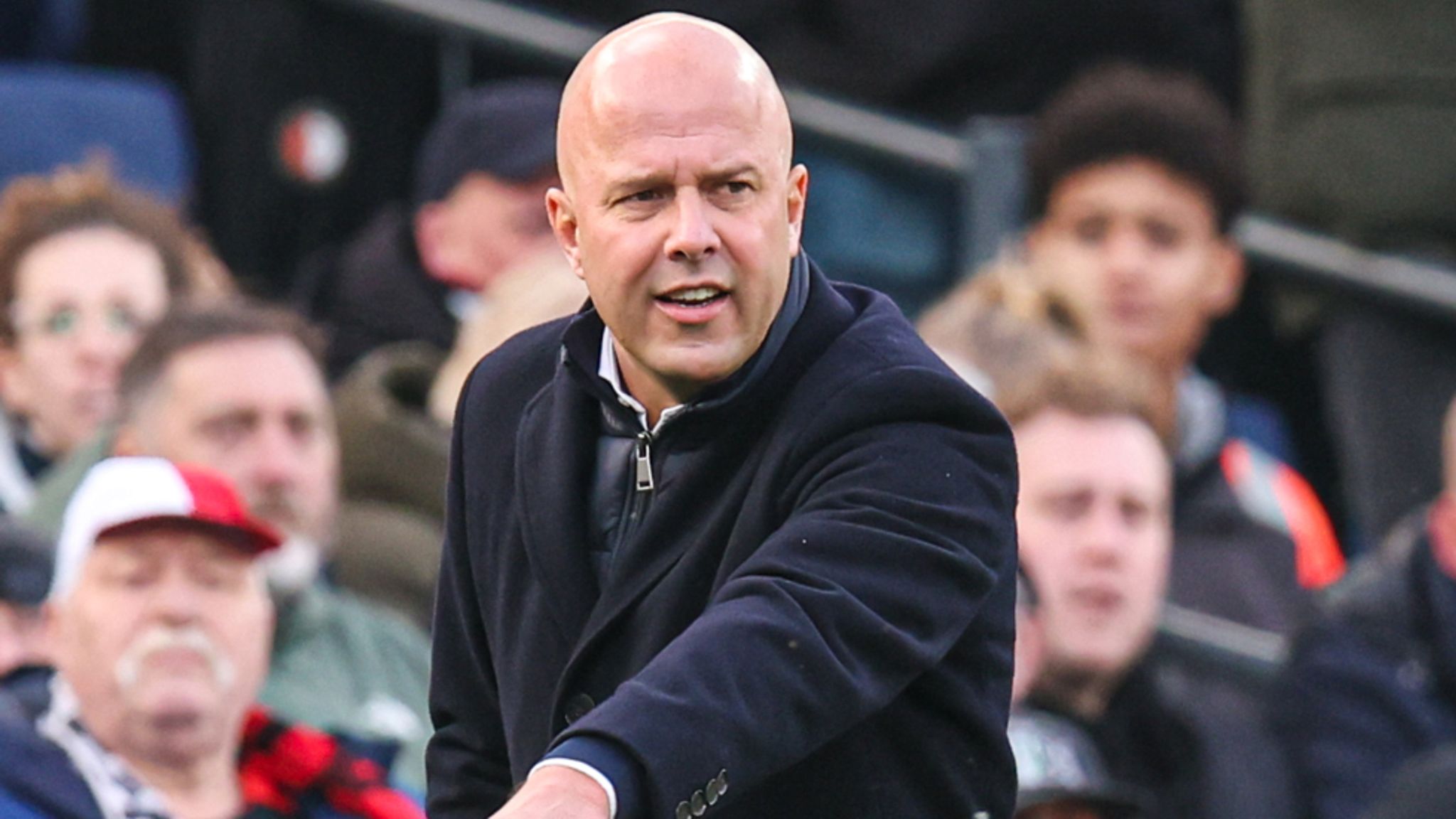Double Trouble In Hollywood: Writers And Actors Strike Cripples Industry

Table of Contents
The Core Issues Fueling the Hollywood Strike
The Hollywood strike isn't simply about money; it's about fundamental changes in the industry landscape and the fight for fair treatment in a rapidly evolving media environment. Two key issues are driving the strikes: fair compensation and the disruptive impact of Artificial Intelligence (AI).
WGA Demands: Fair Compensation and AI Concerns
The WGA strike is fueled by several core demands, primarily focusing on fair wages and the existential threat posed by AI. For years, writers have seen their residuals dwindle with the rise of streaming platforms. The traditional model of receiving residuals from reruns and syndication has been severely impacted by the streaming business model.
- Lack of residuals from streaming services: Streaming platforms often pay a flat fee for the rights to a show, leaving writers with little to no compensation for the ongoing success and viewership of their work. This contrasts sharply with the lucrative residuals writers received from traditional television broadcasting.
- AI-generated scripts threatening writers' livelihoods: The increasing use of AI in scriptwriting raises serious concerns about the future of writers' jobs. The ability of AI to generate scripts cheaply threatens to displace human writers, undermining their skills and expertise.
- Demands for improved working conditions: The WGA also seeks improvements in working conditions, including minimum staffing levels on productions and increased transparency in the contract negotiation process.
These concerns center around the core issues of fair compensation and the protection of writers' creative labor in the age of AI. The WGA strike highlights the need for the industry to adapt to the digital age and ensure fair treatment for its creative workforce. Keyword variations like WGA strike, writers' strike, fair compensation, and AI in Hollywood encapsulate the central issues.
SAG-AFTRA's Fight for Fair Pay and Protection Against AI
SAG-AFTRA's concerns mirror those of the WGA, emphasizing fair wages, residuals, and the ethical use of AI. Actors, like writers, are facing the detrimental impact of the streaming model and the increasing use of AI in the industry.
- Concerns about self-tapes replacing auditions: The rise of self-taped auditions reduces the number of in-person auditions, diminishing opportunities for actors to network and showcase their talent before casting directors.
- Use of AI for voice cloning and facial reconstruction: The use of AI to replicate actors' voices and likenesses without their consent and compensation raises significant ethical and legal questions. Actors are demanding protection against the unauthorized use of their image and voice.
- Demands for increased minimum wages and residuals: SAG-AFTRA seeks substantial improvements in minimum wages and residuals, reflecting the changing landscape of the entertainment industry and the increased reach of streaming platforms.
The SAG-AFTRA strike, coupled with the WGA strike, creates a powerful force for change, utilizing keyword variations such as SAG-AFTRA strike, actors' strike, fair wages, and AI in acting.
The Ripple Effect: Impact Across the Entertainment Industry
The simultaneous strikes have sent shockwaves through the entertainment industry, impacting various sectors and causing significant disruptions.
Production Delays and Cancellations
The Hollywood strike has led to widespread production delays and cancellations across film and television. Numerous projects, both big and small, have been put on indefinite hold.
- Major movie productions put on hold: Blockbuster films slated for release have faced significant delays, impacting release schedules and potentially affecting box office revenue.
- TV show seasons delayed: Television production has completely ground to a halt, delaying the release of new seasons and affecting networks' programming schedules.
- Late-night talk shows going dark: Late-night television, heavily reliant on writers and actors, has been significantly impacted, leading to the cancellation of shows.
- Impact on independent filmmakers: Independent filmmakers, who often rely on smaller budgets and fewer resources, are particularly vulnerable to the disruptions caused by the strike.
Economic Fallout and Job Losses
The economic consequences of the Hollywood strike extend far beyond the actors and writers themselves. Numerous individuals and businesses are feeling the impact.
- Loss of jobs for crew members: Thousands of crew members, including camera operators, editors, and sound technicians, have lost their jobs due to the halted productions.
- Impact on catering companies and local businesses: Local businesses, such as restaurants and hotels, that rely on the entertainment industry for revenue, are suffering financially.
- Economic downturn in Hollywood: The overall economic downturn in Hollywood is impacting the city's economy and the livelihoods of many workers associated with the industry.
This widespread economic impact underlines the importance of reaching a resolution to the Hollywood strike, incorporating relevant keyword variations like production delays, Hollywood shutdown, film production, TV production, economic impact, job losses, and Hollywood economy.
Potential Resolutions and the Future of Hollywood
Resolving the Hollywood strike presents significant challenges, requiring compromises from both studios and the unions.
Negotiation Challenges and Potential Compromises
The core disagreements between the studios and the unions center around the revenue sharing models for streaming platforms, the regulation of AI in the creative process, and the future of the industry itself.
- Differing perspectives on streaming revenue: The studios and the unions have vastly different perspectives on how streaming revenue should be shared, leading to a significant deadlock in negotiations.
- Challenges in regulating AI use: Finding ways to regulate the use of AI in the creative process while protecting the livelihoods of writers and actors presents a major hurdle.
- Potential long-term consequences of the strike: The prolonged strike could have lasting consequences for the industry, potentially leading to permanent changes in the production process and the creative landscape.
The keyword variations strike negotiations, Hollywood negotiations, and union demands accurately reflect this section's content.
Long-Term Implications for the Entertainment Industry
The Hollywood strike could usher in significant long-term changes to the entertainment industry.
- Potential changes to contract negotiations: The outcome of the strike could lead to significant changes in how contracts are negotiated between studios and unions, potentially setting new precedents for the industry.
- Increased use of AI: The industry might see an increased reliance on AI in the future, despite concerns raised by the unions. The strike might accelerate or decelerate this trend, depending on the outcome of negotiations.
- Shift in power dynamics: The strike could result in a shift in the power dynamics between studios and unions, potentially giving unions more leverage in future negotiations.
The keyword variations future of Hollywood, industry changes, and AI impact on entertainment are crucial for SEO optimization in this section.
Conclusion
The simultaneous strikes by the WGA and SAG-AFTRA represent a pivotal moment in Hollywood history. The "double trouble" facing the industry highlights critical issues surrounding fair compensation, the impact of AI, and the power dynamics between unions and studios. The long-term consequences of this Hollywood strike remain uncertain, but it's clear that the industry needs to adapt to the changing landscape. Understanding the complexities of the Hollywood strike is crucial to navigating the future of entertainment. Stay informed and engaged as the situation unfolds, and learn more about how you can support the writers and actors fighting for fair treatment. The future of Hollywood strike resolution will significantly shape the industry for years to come.

Featured Posts
-
 Wrexham Football Club Promoted Ryan Reynolds Response
Apr 29, 2025
Wrexham Football Club Promoted Ryan Reynolds Response
Apr 29, 2025 -
 Southern Beirut Targeted In Israeli Airstrike Residents Urged To Evacuate
Apr 29, 2025
Southern Beirut Targeted In Israeli Airstrike Residents Urged To Evacuate
Apr 29, 2025 -
 Latest On Anthony Edwards Will He Suit Up Against The Lakers
Apr 29, 2025
Latest On Anthony Edwards Will He Suit Up Against The Lakers
Apr 29, 2025 -
 Price Gouging Concerns Rise In La After Fires Real Estate Agents Claims
Apr 29, 2025
Price Gouging Concerns Rise In La After Fires Real Estate Agents Claims
Apr 29, 2025 -
 Arne Slots Liverpool A Premier League Near Miss
Apr 29, 2025
Arne Slots Liverpool A Premier League Near Miss
Apr 29, 2025
Latest Posts
-
 Papal Conclave Legal Battle Over Convicted Cardinals Voting Eligibility
Apr 29, 2025
Papal Conclave Legal Battle Over Convicted Cardinals Voting Eligibility
Apr 29, 2025 -
 Brit Paralympian Missing At Wrestle Mania Found Safe
Apr 29, 2025
Brit Paralympian Missing At Wrestle Mania Found Safe
Apr 29, 2025 -
 Controversial Cardinals Conclave Voting Rights Under Scrutiny
Apr 29, 2025
Controversial Cardinals Conclave Voting Rights Under Scrutiny
Apr 29, 2025 -
 Papal Conclave Disputed Voting Rights Of A Convicted Cardinal
Apr 29, 2025
Papal Conclave Disputed Voting Rights Of A Convicted Cardinal
Apr 29, 2025 -
 Convicted Cardinal Fights For Conclave Voting Rights
Apr 29, 2025
Convicted Cardinal Fights For Conclave Voting Rights
Apr 29, 2025
